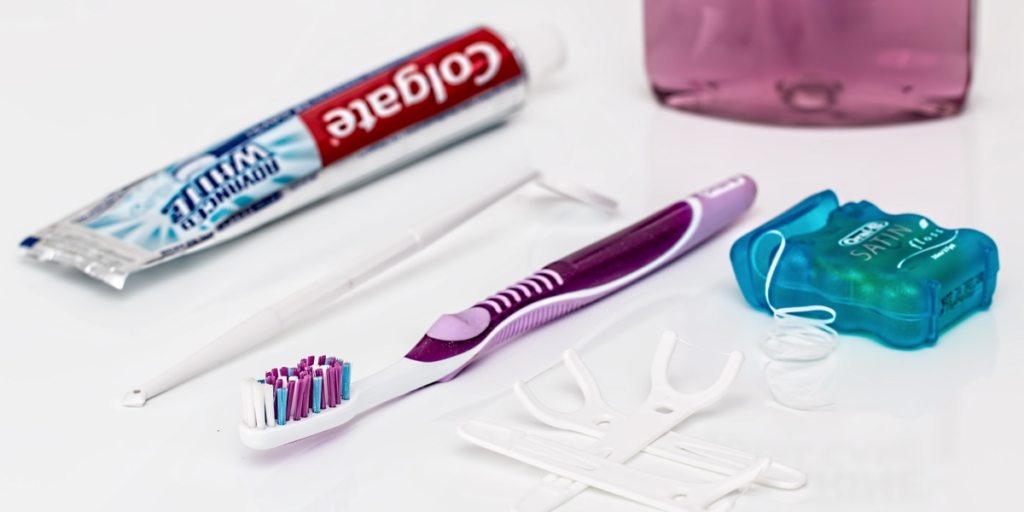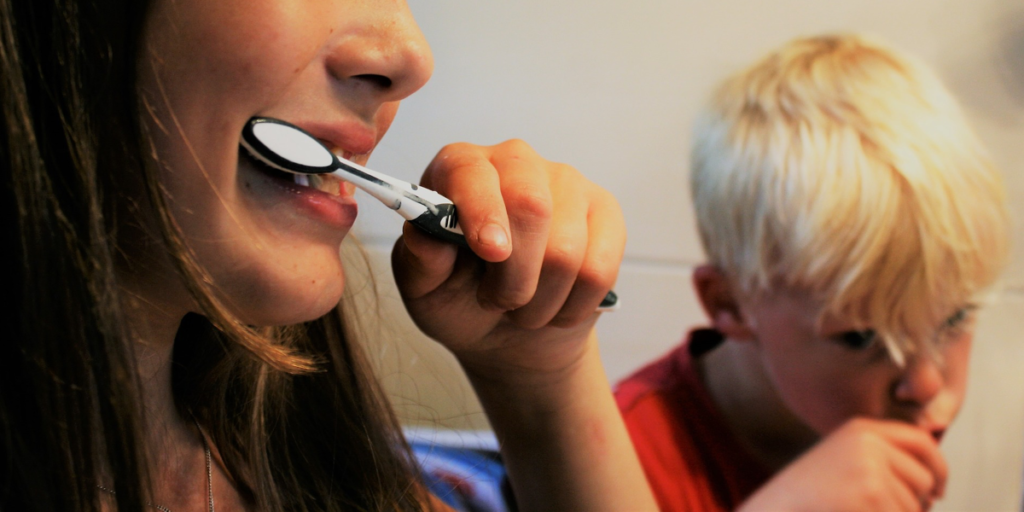Other Articles,
What Causes Sensitive Teeth?
By Buttercup 7 Day Dental 24th Oct 2017
At Buttercup we see patients suffering from sensitive teeth every week.
Whether you get a shooting pain when you sip your iced latte, feel a twinge when you drink a cup of warm tea or experience a mild discomfort when biting into an apple, this article is for you!
We’ve had a look at some of the main reasons why your teeth might be hypersensitive, what you can do about it, and how you can prevent it happening in the future. Let’s get started.

What causes sensitive teeth, and what can you do about it?
Overzealous tooth brushing
Bet you never thought you’d be told off for over- brushing your teeth? Truth is, a lot of people get over excited and think that the harder you brush – the better.
One of the main reasons why people get sensitive teeth is because they are too abrasive when brushing them. When the brushing is too abrasive, you will simply wear down the protective layer of enamel and the tooth will become exposed.
Most standard toothbrushes, and electric toothbrush heads come with medium (M) bristles. If you are experiencing enhanced sensitivity, we’d recommend looking into getting a softer brush head (Soft, S).
Getting used to a softer toothbrush can feel odd. It will likely feel like you are not ‘scrubbing’ your teeth right, but fear not. This instinct is ingrained, and as a matter of fact incorrect. Not only is a softer brush more gentle on your teeth and gums, it is more effective at removing plaque as the smaller bristles are better at accessing the small spaces in between your teeth.
Tooth decay
Old cracked fillings and broken teeth will expose the dentine of your tooth, and make it hypersensitive. The tooth is essentially made up of four major layers, or components if you will. The enamel is the outer layer, and then comes the dentine which stretches all the way into the root of the tooth.
To prevent tooth decay, you need to maintain a good oral hygiene. All day, every day. If you suspect you might have a broken tooth, or an old filling that needs replaced you should book an appointment with your dentist and get it checked before it starts to hurt.

Tooth grinding
If you’ve got sensitive teeth, then you might be a grinder. In our experience, more that ¾ of our adult patients show signs of wear from grinding.
When you grind your teeth, the friction will wear down the enamel. As the tooth is left uncovered by enamel, its sensitivity is extremely enhanced.
Suspect your teeth might be sensitive because of grinding? Check out our article Are You A Grinder?
If you’re quietly nodding along thinking you might be a grinder, then get in touch and we can figure out what to do next. Very often, a simple night guard made of rubber to protect your teeth is enough to keep the wearing down of the teeth at a bare minimum.
Dental erosion
If you’re a lover of all things sweet and fizzy, then you might want to reconsider your liquid intake. The high acidity of fizzy juice, energy drinks and many fruit juices, can quickly wear down the protective enamel. No enamel means no protection, no protection means very sensitive teeth.
We know it doesn’t exactly bring the best out in Coca Cola if you drink a glass right after having brushed your teeth. It is however a good idea, if you must, to drink your fizzy juice with clean teeth.
Another trick, is drinking through a straw. When you drink through a straw you minimise the contact that the fizzy juice has with your teeth.
If you suspect that your teeth might be damaged, it’s a good idea to talk to your dentist. They can help you find out how serious the situation is, and tell you if you need to proactively do something about dental erosion.
Gum disease
A buildup of plaque and tartar can be very harmful for your enamel. Gum disease, also known as gingivitis, is often painless for a very long time as the damage is in the bones supporting the teeth.
Gingivitis will often show in terms of red and swollen gums that will bleed when you brush or floss between your teeth.
Most people suffer from gingivitis to some extent, and it’s a major cause of tooth loss amongst adults in the UK.
If you’ve noticed enhanced sensitivity when flossing, brushing or biting into something it’s worth getting it checked with your dentist.
There are a whole load of preventative oral hygiene steps you can take.
- Be careful to brush and floss carefully, every day.
- Think about the acidity of the food you eat, and the drinks you drink
- Avoid cigarettes and tobacco
- Visit your dentist regularly
What can you do?

There’s lots to do if you have very sensitive teeth. Our recommendation is to start with a softer brush head. The normal brush is often too rough, and you are likely to slowly wear down the protective layer of enamel. This is not good. Enamel doesn’t grow back, like hair and nails do. You only get one shot at looking after your teeth.
If you are using a soft toothbrush and your teeth are still sensitive, you can try a toothpaste made for sensitive teeth. In our clinic, we often recommend Sensodyne’s repair and protect. Albeit a bit more expensive than your average colgate, we really think Sensodyne has developed a top quality toothpaste.
If you’re still experiencing sensitive teeth, book a check up with your dentist and get some professional advice.
Similar Posts
Root canal vs extraction: A comparison from our dentist in Glasgow West End
By Hannah Kemp • 08th Jan 2021


